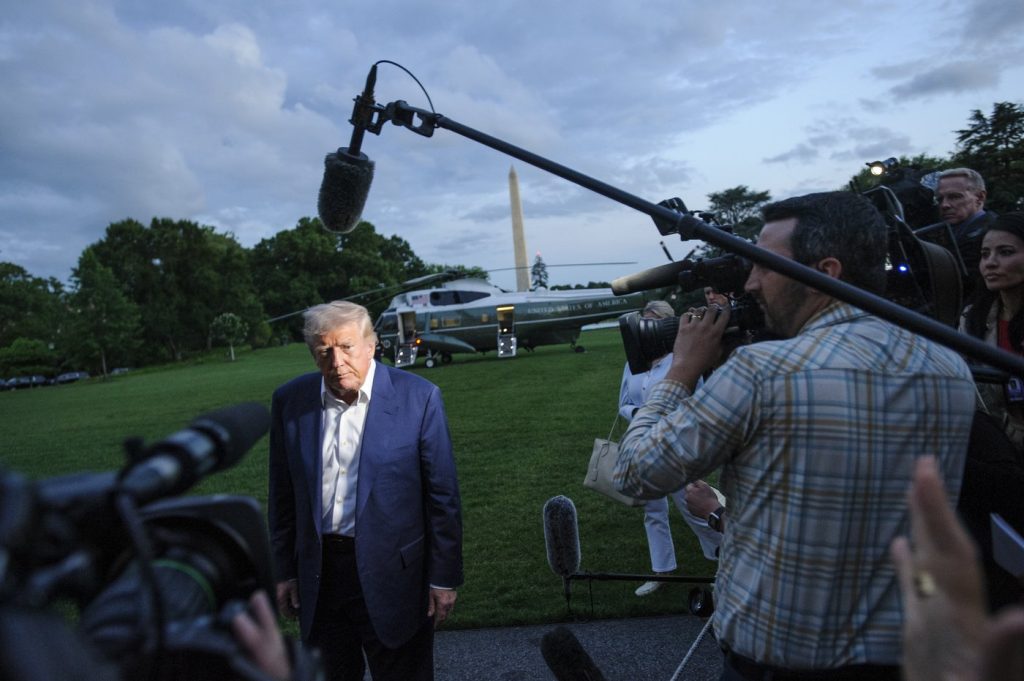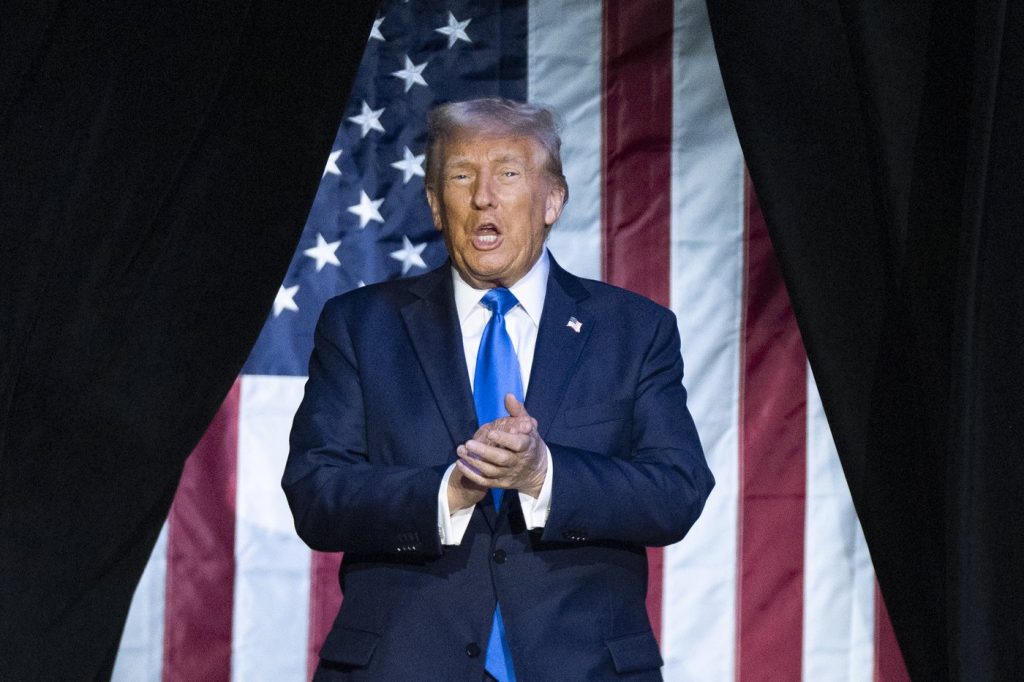NEW YORK (AP) — President Donald Trump has intensified his tariff policies by targeting films produced outside the United States. In a post on his Truth Social platform on Sunday night, Trump announced he has authorized the Department of Commerce and the Office of the U.S. Trade Representative to impose a staggering 100% tariff on any and all movies entering the U.S. that are produced in foreign countries.
Trump expressed concerns that the American movie industry is "DYING a very fast death," attributing this decline to other countries offering attractive incentives that lure filmmakers and studios away from the U.S. He characterized this trend as a "concerted effort by other Nations" that poses a national security threat, citing it as part of a larger issue of messaging and propaganda.
However, the practical implementation of such a tariff on international film productions remains unclear. Many films, both large and small, typically involve production in multiple countries. For example, major films like the forthcoming "Mission: Impossible – The Final Reckoning" are shot across various global locations.
Incentive programs have long played a significant role in determining where films are produced, which has increasingly shifted film production away from California to states and countries that offer more favorable tax incentives, such as Canada and the United Kingdom. Despite the introduction of tariffs aimed at diverting consumers toward American-made products, American films already dominate the domestic box office significantly.
China's efforts to bolster its domestic film production have become evident, as showcased by the success of the animated blockbuster "Ne Zha 2," which grossed over $2 billion this year. However, this film's earnings were largely limited to the Chinese market, with just $20.9 million earned in North America.
While the Motion Picture Association (MPA) did not respond immediately to Trump's announcement, their data highlights the dominance of Hollywood in global markets. In 2023, American films earned $22.6 billion in exports, contributing to a $15.3 billion trade surplus.
Trump has previously branded himself as the "tariff man," implementing new taxes on imports from various countries. His administration has introduced significant tariffs, including a 145% rate on Chinese goods and a baseline 10% tariff on products from other nations, with further increases threatened. By imposing tariffs unilaterally, Trump has created a complex landscape for international trade, leading to potential political risks and market changes.
The U.S. film and television sectors have faced numerous hurdles recently, including the impacts of the COVID-19 pandemic, the Hollywood strikes in 2023, and wildfires affecting the Los Angeles area. According to ProdPro data, overall film production in the U.S. saw a 26% decrease in 2022 compared to the previous year.
The latest annual survey from ProdPro, which surveyed industry executives on preferred filming locations, revealed none of the top five choices were in the United States. Toronto, the United Kingdom, Vancouver, Central Europe, and Australia topped the list, with California ranked sixth, followed by Georgia, New Jersey, and New York.
In California, the situation appears especially dire, with production in the greater Los Angeles area down 5.6% last year compared to 2022, second only to 2020 during the pandemic's peak. In response to these challenges, California Governor Gavin Newsom proposed expanding the state's Film & Television Tax Credit program to $750 million annually, up from $330 million.
Other locations in the U.S., including Atlanta, New York, Chicago, and San Francisco, have adopted aggressive tax incentive programs to attract film and television productions. These incentives may come in the form of either cash grants, as seen in Texas, or tax credits provided by Georgia and New Mexico.
Trump reiterated his concerns regarding international competition, stating, "Other nations have been stealing the movie-making capabilities from the United States." He emphasized that if filmmakers are unwilling to produce their work domestically, then imposing tariffs on their films is a reasonable approach.












